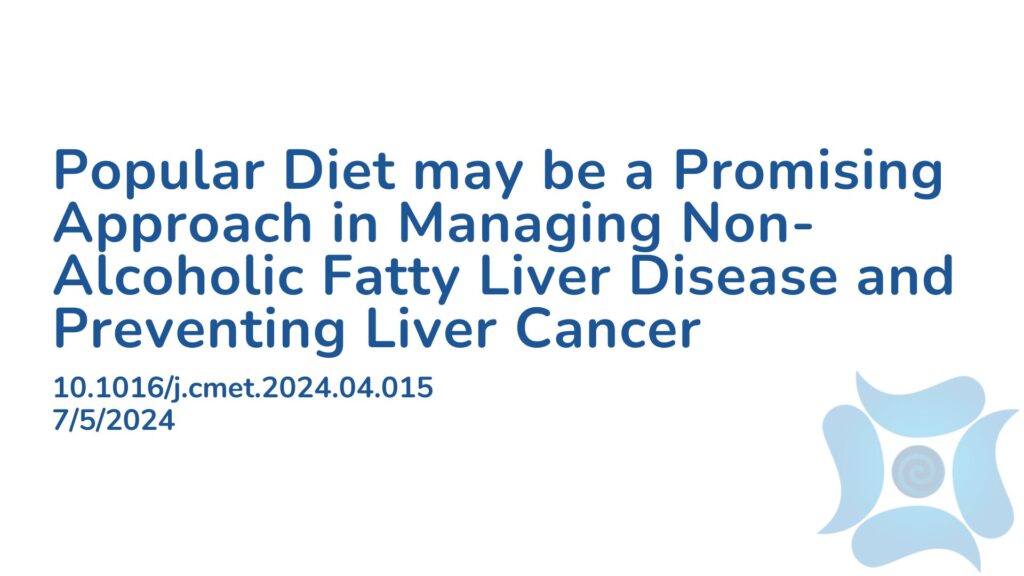Summary:
Non-alcoholic fatty liver disease (NAFLD), a common liver condition linked to obesity, can progress to severe forms such as non-alcoholic steatohepatitis (NASH) and eventually to liver cancer. The rise in global obesity rates also raises concerns about the risk of NAFLD and NASH. With no approved drugs for NAFLD and NASH, there is growing interest in the dietary management of these conditions. Intermittent fasting and similar diets have gained popularity not only for reducing obesity rates but also for preventing other conditions such as diabetes and cancer. Despite evidence supporting dietary restrictions like intermittent fasting for overall health, their impact on liver diseases like NAFLD and NASH remains uncertain, prompting this study. The researchers found that a 5:2 intermittent fasting regimen (where individuals abstain or significantly limit their calorie intake from foods and liquids for 2 non-consecutive days a week) not only prevents NASH development but also improves established NASH and fibrosis without altering overall calorie intake. Additionally, the 5:2 regimen hinders the transition from NASH to liver cancer. These findings suggest that the 5:2 intermittent fasting regimen holds promise as an intervention against the treatment of NAFLD, the development of NASH, and subsequent liver cancer.
Abstract:
The role and molecular mechanisms of intermittent fasting (IF) in non-alcoholic steatohepatitis (NASH) and its transition to hepatocellular carcinoma (HCC) are unknown. Here, we identified that an IF 5:2 regimen prevents NASH development as well as ameliorates established NASH and fibrosis without affecting total calorie intake. Furthermore, the IF 5:2 regimen blunted NASH-HCC transition when applied therapeutically. The timing, length, and number of fasting cycles as well as the type of NASH diet were critical parameters determining the benefits of fasting. Combined proteome, transcriptome, and metabolome analyses identified that peroxisome-proliferator-activated receptor alpha (PPARα) and glucocorticoid-signaling-induced PCK1 act co-operatively as hepatic executors of the fasting response. In line with this, PPARα targets and PCK1 were reduced in human NASH. Notably, only fasting initiated during the active phase of mice robustly induced glucocorticoid signaling and free-fatty-acid-induced PPARα signaling. However, hepatocyte-specific glucocorticoid receptor deletion only partially abrogated the hepatic fasting response. In contrast, the combined knockdown of Ppara and Pck1 in vivo abolished the beneficial outcomes of fasting against inflammation and fibrosis. Moreover, overexpression of Pck1 alone or together with Ppara in vivo lowered hepatic triglycerides and steatosis. Our data support the notion that the IF 5:2 regimen is a promising intervention against NASH and subsequent liver cancer.
Article Publication Date: 7/5/2024
DOI: 10.1016/j.cmet.2024.04.015



